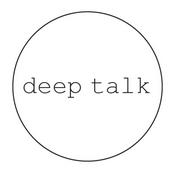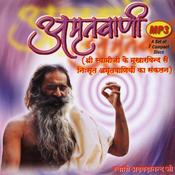22 Episoden
- Let's take a grounded look at the state of the AI industry in early 2026 and ask whether we’re actually any closer to artificial general intelligence (AGI) or superintelligence than we were a few years ago. Despite massive valuations for companies like OpenAI and bold promises from AI lab leaders, today’s systems still struggle with hallucinations, common sense, and a genuine understanding of the world.
So join me as I revisit core assumptions behind current AI approaches—especially the ideas that the mind is computable and that scaling up large language models is enough to “solve” intelligence, and why many researchers are now pivoting from the “age of scaling” to an “age of research” into the nature of intelligence itself.
What happens to AI company valuations if superintelligence remains out of reach for the foreseeable future?
And how should we rethink intelligence beyond language, code, and computation?
BREAKING: Demis Hassabis of Google Deepmind now agrees that LLMs are a dead-end on the road to AGI
Substack version of this episode
My 2024 deep dive into the impediments to AGI
What non-ordinary states of consciousness tell us about intelligence
Ilya Sutskever on Dwarkesh
The LLM memorization crisis
On the Tenuous Relationship between Language and Intelligence
Gary Marcus on The Real Eisman (of Big Short fame)
Fei-Fei Li’s World Labs: https://www.worldlabs.ai/blog
Support the show
Join Chad's newsletter to learn about all new offerings, courses, trainings, and retreats.
Finally, you can support the podcast here. - Why is Mark Zuckerberg so obsessed with the Roman Empire?
Why is Peter Thiel so obsessed with the Antichrist?
Why does Sam Altman want $7 trillion dollars for an uncharted course to an unknown destination?
And how can be build AI models and an AI company based on principles of kinship and reciprocity?
In my ongoing exploration of what's rotten in Silicon Valley tech innovation and the ideologies driving it, last time I talked about the pandemic of what I called the Apollonian Mind Virus, a tendency throughout the modern world to favor cold, disembodied hyperrationality and cognitive intelligence over all other ways of knowing and being, over intuition, emotional intelligence, embodiment, and wisdom. This Apollonian orientation toward nature has ushered in what Sam Altman has dubbed the Intelligence Age. "Apollonian" describes the worldview and theories of intelligence behind current approaches to AI.
Today, inspired by Native American thinkers like Jack D. Forbes and Robin Wall Kimmerer, as well as Karen Hao’s work, I explore an adjacent pandemic of the mind or sickness of spirit that is insatiable, extractive, and exploitative: The hungry ghost of the Windigo. I argue that current approaches to AI are largely the result of these two features of the modern, Western ethos—the interwoven helix of the Apollonian Mind and the Windigo soul sickness. I then close this post by beginning to explore whether there is a better way to innovate and evolve, collectively.
Substack version here.
Support the show
Join Chad's newsletter to learn about all new offerings, courses, trainings, and retreats.
Finally, you can support the podcast here. - In this conversation, philosopher Matt Segall and I address the role of philosophy in contemporary culture, emphasizing the need for discernment amidst ideological ferment. We critique transhumanist Silicon Valley ideologies, highlighting their left-hemisphere bias and magical thinking. We also discusses the implications of AI, arguing that while it's a valuable tool, the real danger lies in the extractive, capitalist machine driving its development.
More about Matt, including his Substack, his YouTube channel, and his conversation with Michael Levin.
God Human Animal Machine by Meghan O’Gieblyn https://amzn.to/3IzujNq
Against the Machine, by Paul Kingsnorth https://amzn.to/4ntYp4b
‘Other,’ by R. S. Thomas
The machine appeared
In the distance, singing to itself
Of money. Its song was the web
They were caught in, men and women
Together. The villages were as flies
To be sucked empty.
God secreted
A tear. Enough, enough,
He commanded, but the machine
Looked at him and went on singing.
Support the show
Join Chad's newsletter to learn about all new offerings, courses, trainings, and retreats.
Finally, you can support the podcast here. - Peter Thiel is speaking this month in San Francisco about the antichrist. Nicole Shanahan, ex-wife of Google co-founder Sergey Brin and former vice-presidential running mate of Robert F. Kennedy Jr., called the annual Burning Man festival "demonic" last week. These are the most recent developments in the rise of techno-Christianity, a reaction in part to transhumanism and Effective Altruism.
Peter Thiel has also questioned the viability of democracy, which brings us to the "Dark Enlightenment" of Curtis Yarvin and Nick Land that advocates for anti-democratic CEO-kings. Although it was a fringe idea for many years, it has now gained traction with Silicon Valley billionaires like Balaji Srinivasan, who advocate for the "Exit," seasteading, and "network states."
It feels like we live in the strangest times, shaped by powerful people with the worst ideas. Because technology reflects the consciousness of the people creating it, I am deeply concerned about the people creating our technologies, especially artificial intelligence.
In my new podcast series, I begin trying to understand the philosophical and psychological underpinnings behind the strange ideologies coming out of Silicon Valley, ideologies very much shaping technology innovation today. Inspired by Nietzsche and Iain McGilchrist, I'm calling the imbalanced thinking behind all of this that emphasizes left hemisphere qualities “Apollonian Intelligence" or the "Apollonian Mind."
Peter Thiel on Ross Douthat’s New York Times podcast raving about the antichrist
Thiel’s four-part lecture series about the antichrist https://luma.com/antichrist
Nicole Shanahan’s rant about demonic Burning Man
New Yorker coverage of Curtis Yarvin’s “Dark Enlightenment”
Iain McGilchrist’s wonderful book The Matter with Things
Support the show
Join Chad's newsletter to learn about all new offerings, courses, trainings, and retreats.
Finally, you can support the podcast here. - In this episode I explore the complex relationship between artificial intelligence (AI) and wisdom, particularly focusing on discernment. I argue that while AI can hinder discernment by perpetuating biases and misinformation, it also holds some potential for cultivating it through tools that aid meditation and self-reflection. I also emphasize the importance of truth and self-awareness in this "age of AI." Ultimately, I argue that discernment is a uniquely human quality that requires ongoing effort and vigilance, whether aided by AI or not.
This one was a long-time coming so I hope you get as much out of listening as I did writing it!
More on OpenAI's recent decision to remove some of the content guardrails on ChatGPT.
This episode was adapted from a guest post on Michael Spencer's AI Supremacy newsletter.
Support the show
Join Chad's newsletter to learn about all new offerings, courses, trainings, and retreats.
Finally, you can support the podcast here.
Weitere Religion und Spiritualität Podcasts
Trending Religion und Spiritualität Podcasts
Über Cosmic Intelligence
Welcome to Cosmic Intelligence (formerly Spiritual But Not Ridiculous), a podcast that explores philosophy (Western and Vedic), consciousness, cosmology, spirituality, and technologies in the broadest sense—technologies of the sacred, of transformation, and of the mundane. As we enter this age of artificial intelligence (AI), we focus in particular on AI and its implications for humanity, questions of consciousness, AI safety and alignment, and what it means to be human in the 21st century, as well as its impact on our shared worldview. Since worldviews create worlds we will always keep one eye on our shifting worldview, hoping to encourage it along from materialism to idealism.In terms of consciousness and spirituality, we also explore spiritual practices and other ways to expand consciousness, the importance of feeling our feelings, how to cultivate compassion and empathy, find balance, and lean into fear as a practice. Sometimes we have guests. We approach all subjects from a grounded and discerning perspective.Your host is Chad Jayadev Woodford, a philosopher, cosmologist, master yoga teacher, Vedic astrologer, lawyer, and technologist.
Podcast-WebsiteHöre Cosmic Intelligence, Profundum Austria und viele andere Podcasts aus aller Welt mit der radio.at-App

Hol dir die kostenlose radio.at App
- Sender und Podcasts favorisieren
- Streamen via Wifi oder Bluetooth
- Unterstützt Carplay & Android Auto
- viele weitere App Funktionen
Hol dir die kostenlose radio.at App
- Sender und Podcasts favorisieren
- Streamen via Wifi oder Bluetooth
- Unterstützt Carplay & Android Auto
- viele weitere App Funktionen


Cosmic Intelligence
Code scannen,
App laden,
loshören.
App laden,
loshören.


























